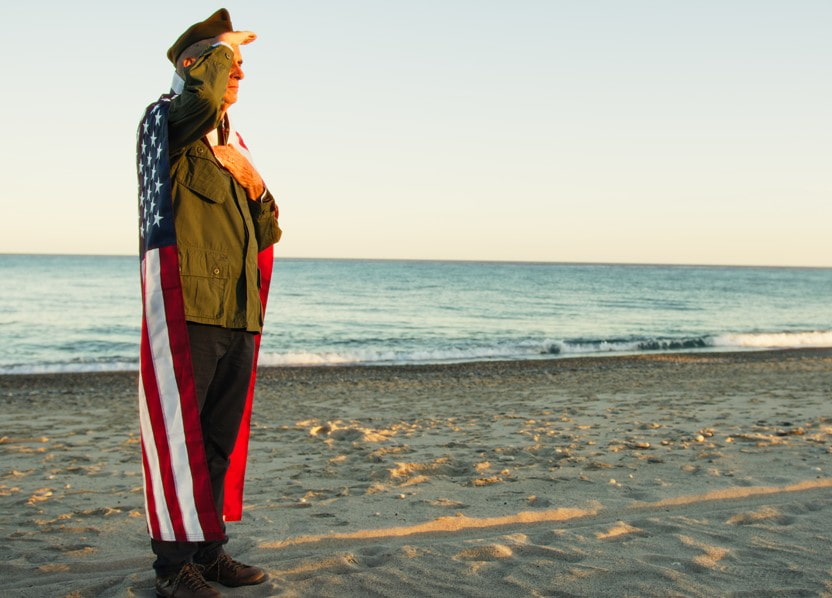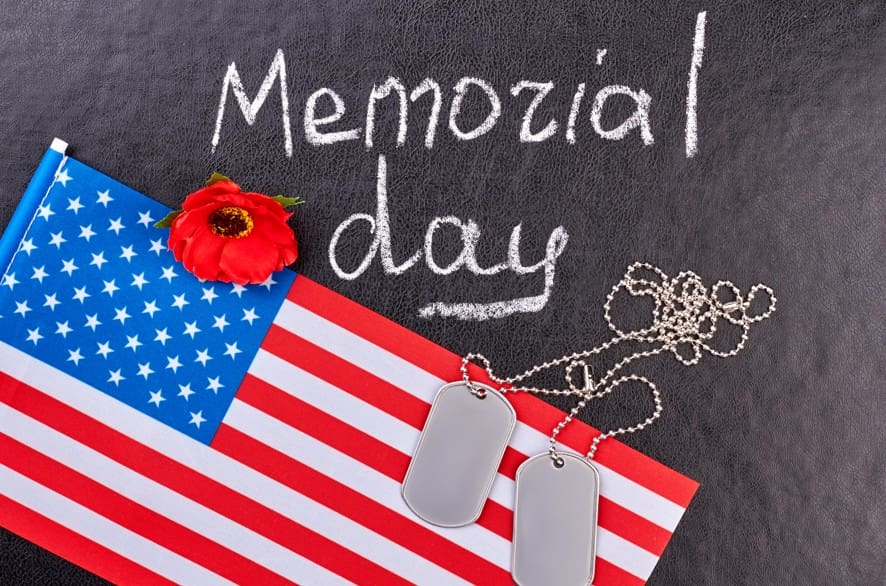Why This Day Matters Deeply in Senior Living
Memorial Day, observed on the last Monday of May, is a national day of remembrance honoring U.S. military personnel who passed while serving their country.
While it’s recognized across the nation, in senior living communities, its meaning is often deeply personal.
For many residents, Memorial Day isn’t just a date—it’s a lived memory. Within our walls, the echoes of history aren’t distant—they’re present, spoken, and felt.
Here’s why this day carries special weight in senior living:
- History sits at the table.
Residents aren’t recalling distant wars—they’re remembering names, faces, and moments from World War II, Korea, Vietnam, and beyond. For them, this isn’t a history lesson—it’s part of who they are.
- Loss isn’t abstract.
Many have lost friends, siblings, or spouses in service. The emotions tied to Memorial Day remain real and close, even decades later.
- Service shaped their identity.
From the battlefield to the factory floor, residents remember a time when service was a collective effort. It wasn’t just a duty—it was a generation-wide commitment.
- Remembrance is active, not symbolic.
It’s the letter in a drawer. The folded flag by the bedside. The moment of silence that comes not from tradition, but from love.
- Community deepens the ritual.
In senior living, shared memories become shared honors. Residents support one another in remembering—often finding comfort in reflection together.
In a world that moves fast, Memorial Day in senior communities invites us to slow down and truly listen—to memory, to sacrifice, and to the enduring spirit of those who served and were lost.

Meaningful Ways to Honor Memorial Day—With or Without a Ceremony
Many senior living communities commemorate Memorial Day with moving ceremonies—flag raisings, moments of silence, or tributes to the fallen. These shared rituals create a powerful sense of honor and unity.
But even when a formal ceremony isn’t possible—or when your loved one prefers something quieter—there are still meaningful ways to reflect and connect.
Here are some thoughtful ways families can bring purpose and presence to Memorial Day:
A chance to reflect, share stories, and foster intergenerational understanding
Sometimes, the most powerful tributes are personal conversations.
- Ask about their memories – If your loved one served or lived through wartime, invite them to share what they remember. You may hear stories they’ve never told before.
- Include younger generations – Help children and grandchildren understand the meaning of the day. A simple question like “What was it like during the war?” can start a powerful conversation.
- Bring a symbolic item – A photo, medal, or newspaper clipping can stir emotion and unlock memories more deeply than words alone.
Supports emotional wellbeing, purpose, and community belonging
These moments of remembrance support emotional and psychological wellbeing—especially in older adults.
- Invite them to share wisdom – Let your loved one know their voice matters. Feeling heard affirms their life experience and restores a sense of purpose.
- Be present, with intention – A thoughtful visit, call, or even a letter can mean more than a long ceremony.
- Honor complex feelings – Memorial Day can bring up pride, grief, or unresolved emotions. Simply listening with care is often the best support.
Visiting local veterans’ memorials or cemeteries (if feasible)
If your loved one is able—or if you visit on their behalf—these moments of presence can carry deep meaning.
- Make it a quiet ritual – Place flowers, say a name, observe a moment of silence.
- Include their memories – Reflect together on people they knew, or share stories for each flag you pass.
Creating tribute boards with photos or handwritten notes
A creative and personal project that can be shared in person or by mail:
- Build a memory board – Collect photos of those who served and create a collage or framed piece.
- Include messages from the family – Ask each relative to write a note of remembrance or gratitude.
- Leave space for their voice – Invite your loved one to add names, thoughts, or memories to the tribute.
Bonus tip: If you can’t be there in person…
- Video call with meaning – Share a memory, ask a thoughtful question, sing a song they love, or hold up something you made to honor the day.
- Mail something personal – A printed photo, handwritten note, or small tribute can be deeply meaningful.
- Send music – Patriotic songs or music from their generation can offer comfort, nostalgia, and a sense of connection.
Memorial Day isn’t about doing something big—it’s about doing something meaningful.
For families with loved ones in senior living, these small acts can become lasting bridges:
between generations, between memory and presence, and between honoring the past and nurturing the present.
Memorial Day Safety Tips for Older Adults
Whether spending time in the community, with family, or enjoying a moment of quiet reflection, it’s important to keep safety in mind—especially for older adults. Memorial Day often brings increased activity, outdoor gatherings, and emotional reflection, all of which can be meaningful but also physically or mentally taxing.
Here are some gentle reminders to help make the day both safe and supportive:
✅ Stay hydrated
If you’re visiting outdoors, bring a water bottle and avoid long exposure to the sun. Older adults may be more vulnerable to dehydration, especially during holiday weekends.
✅ Watch for emotional fatigue
Memorial Day can bring up powerful memories. Make time for rest and quiet moments, especially if the day involves storytelling, emotional reflection, or ceremonies.
✅ Keep things accessible
If attending an event or visiting a memorial site, ensure that pathways are clear, seating is available, and mobility needs are considered ahead of time.
✅ Dress for the weather
Comfortable shoes, a light jacket, sun protection, and a hat can make a big difference—especially for seniors participating in outdoor tributes.
✅ Have a plan for medications
If your loved one is spending the day away from their community, double-check that medications are packed and scheduled as needed.
✅ Keep communication open
Let staff know if you’ll be taking your loved one out, or if you notice any signs of emotional distress during the holiday. The goal is not just a beautiful day, but a supported one.
Memorial Day is a time for honoring the past—but it’s also a time to care for the present.
With a little planning and thoughtful attention, families can ensure that this meaningful day is both emotionally fulfilling and physically safe for their loved ones.






 Madison Heights and Kelley Place is the first specialty care community to focus on memory care in Enterprise, Alabama. Naturally, their weevil had to represent the individuals and families who suffer from Alzheimer’s and dementia daily.
Madison Heights and Kelley Place is the first specialty care community to focus on memory care in Enterprise, Alabama. Naturally, their weevil had to represent the individuals and families who suffer from Alzheimer’s and dementia daily. 